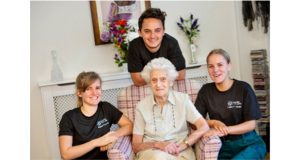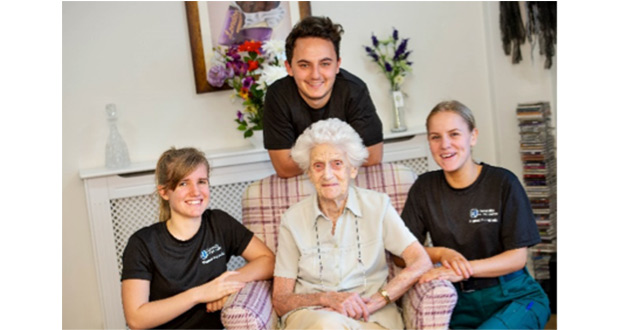Sanctuary Care Supports Aspiring Paramedics
 Around 200 trainee paramedics, physician associates, occupational therapists and physiotherapists are getting first-hand work experience at Sanctuary Care homes across the Midlands.
Around 200 trainee paramedics, physician associates, occupational therapists and physiotherapists are getting first-hand work experience at Sanctuary Care homes across the Midlands.
Students from Birmingham City University and the University of Worcester are getting work experience at around 20 of Sanctuary Care’s homes, including those in Worcestershire and Birmingham.
The placements, which started in October and will be staggered until February 2019, give the students the opportunity to develop their communication, social and practical skills and are a fantastic way for Sanctuary Care to help aspiring young students.Sanctuary Care’s Yunus Giwa, Senior Work Programmes Officer said: “We are proud to be supporting two of our local universities by helping their students to get such incredibly valuable work experience.
“We welcomed around 50 students from the University of Worcester into our homes last year and the feedback from themselves, as well as our residents and staff was so positive that we were thrilled to expand the project this year.
“The placements are an excellent way to encourage intergenerational engagement – many of our residents really enjoy spending time with the younger generation, so this is extremely beneficial for them too.”
Sharon Hardwick, Senior Lecturer Paramedic Science from Birmingham City University said: “This is a new and exciting opportunity for paramedic students at Birmingham City University.
“Student feedback so far has been positive with the students developing their communication skills as well as learning how the care home operates and liaising with other health care professionals.”
Practise Lead at the University of Worcester, Paula Gardner added: “The students have thoroughly enjoyed their time with Sanctuary Care. They have developed communication and inter-personal skills and gained an understanding of caring for residents with individual needs. Helping with activities of daily living, giving emotional support to residents and their families and providing individual care has given the students essential lifelong skills.
“Working as part of a multi-disciplinary team, with a variety of shifts and building relationships with colleagues and residents has given them insight into the caring profession and will be invaluable in their future paramedic careers.”
As part of their placements so far the students, who shadow members of staff, have been doing everything from learning about resident care plans and how to write their life histories, to undertaking physical assessments, learning how to support residents who are less mobile, taking part in an array of activities and helping at mealtimes.






